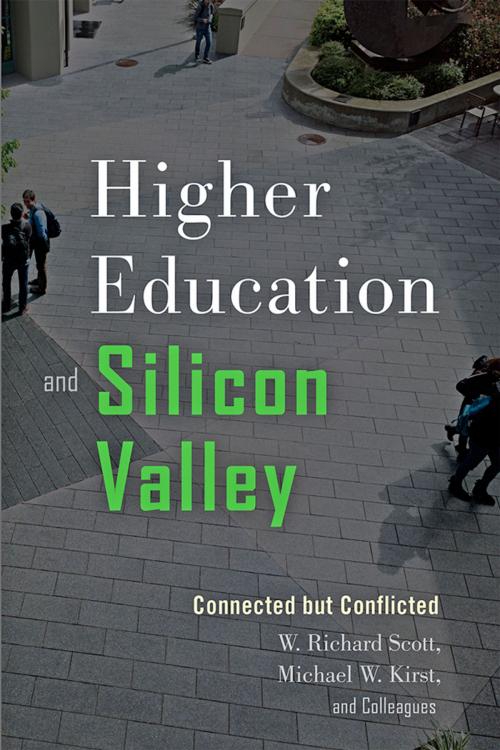Higher Education and Silicon Valley
Connected but Conflicted
Nonfiction, Reference & Language, Education & Teaching, Higher Education, Administration| Author: | W. Richard Scott, Michael W. Kirst | ISBN: | 9781421423098 |
| Publisher: | Johns Hopkins University Press | Publication: | September 1, 2017 |
| Imprint: | Language: | English |
| Author: | W. Richard Scott, Michael W. Kirst |
| ISBN: | 9781421423098 |
| Publisher: | Johns Hopkins University Press |
| Publication: | September 1, 2017 |
| Imprint: | |
| Language: | English |
Universities and colleges often operate between two worlds: higher education and economic systems. With a mission rooted in research, teaching, and public service, institutions of higher learning are also economic drivers in their regions, under increasing pressure to provide skilled workers to local companies. It is impossible to understand how current developments are affecting colleges without attending to the changes in both the higher education system and in the economic communities in which they exist.
W. Richard Scott, Michael W. Kirst, and colleagues focus on the changing relations between colleges and companies in one vibrant economic region: the San Francisco Bay Area. Colleges and tech companies, they argue, have a common interest in knowledge generation and human capital, but they operate in social worlds that substantially differ, making them uneasy partners. Colleges are a part of a long tradition that stresses the importance of precedent, academic values, and liberal education. High-tech companies, by contrast, value innovation and know-how, and they operate under conditions that reward rapid response to changing opportunities. The economy is changing faster than the postsecondary education system.
Drawing on quantitative and historical data from 1970 to 2012 as well as 14 case studies of colleges, this book describes a rich and often tense relationship between higher education and the tech industry. It focuses on the ways in which various types of colleges have endeavored—and often failed—to meet the demands of a vibrant economy and concludes with a discussion of current policy recommendations, suggestions for improvements and reforms at the state level, and a proposal to develop a regional body to better align educational and economic development.
Universities and colleges often operate between two worlds: higher education and economic systems. With a mission rooted in research, teaching, and public service, institutions of higher learning are also economic drivers in their regions, under increasing pressure to provide skilled workers to local companies. It is impossible to understand how current developments are affecting colleges without attending to the changes in both the higher education system and in the economic communities in which they exist.
W. Richard Scott, Michael W. Kirst, and colleagues focus on the changing relations between colleges and companies in one vibrant economic region: the San Francisco Bay Area. Colleges and tech companies, they argue, have a common interest in knowledge generation and human capital, but they operate in social worlds that substantially differ, making them uneasy partners. Colleges are a part of a long tradition that stresses the importance of precedent, academic values, and liberal education. High-tech companies, by contrast, value innovation and know-how, and they operate under conditions that reward rapid response to changing opportunities. The economy is changing faster than the postsecondary education system.
Drawing on quantitative and historical data from 1970 to 2012 as well as 14 case studies of colleges, this book describes a rich and often tense relationship between higher education and the tech industry. It focuses on the ways in which various types of colleges have endeavored—and often failed—to meet the demands of a vibrant economy and concludes with a discussion of current policy recommendations, suggestions for improvements and reforms at the state level, and a proposal to develop a regional body to better align educational and economic development.















